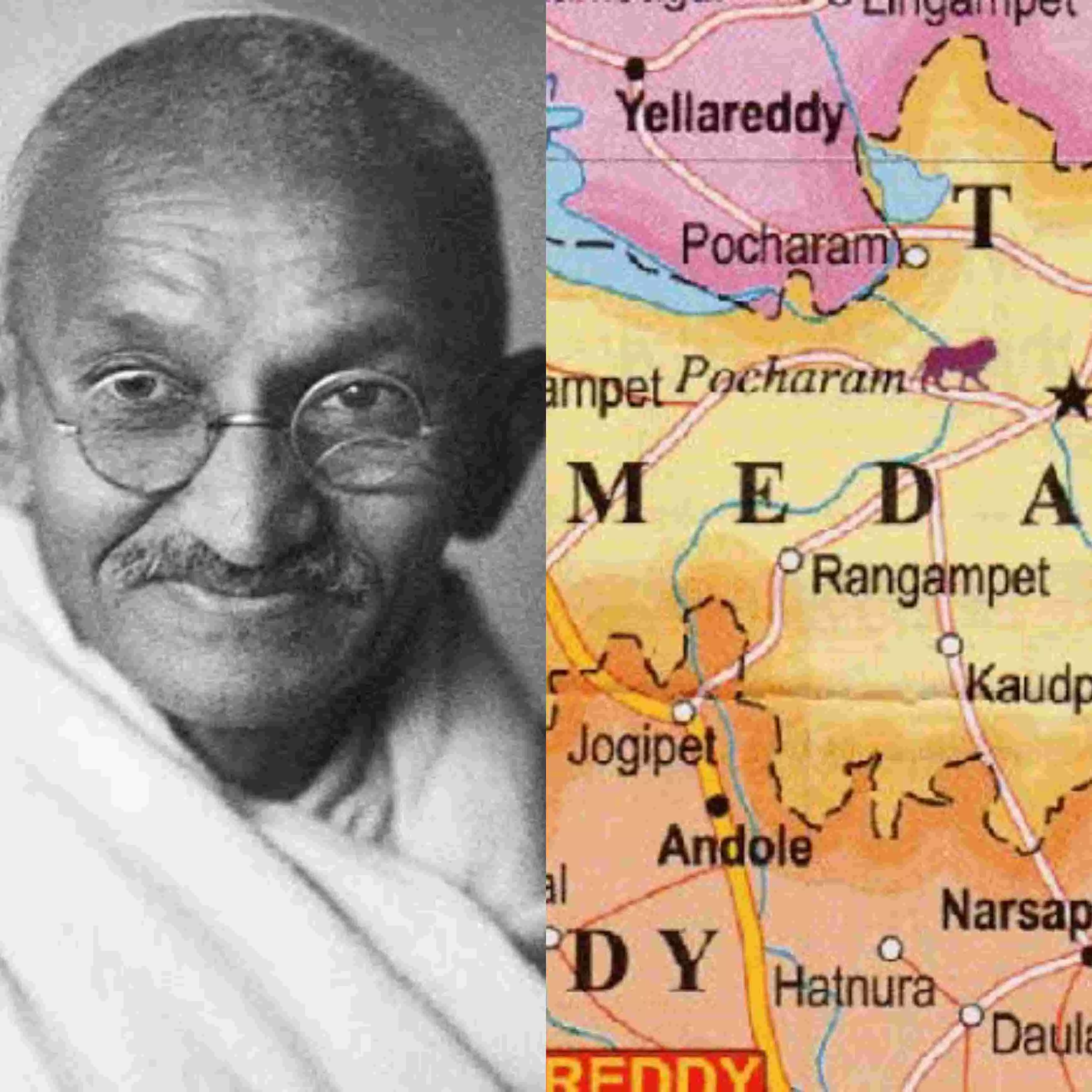Opinion: Mahatma Gandhi’s vision of Ahimsa can rectify violence in Medak
Gandhism, an amalgam of Gandhi’s views and practices, revolves around ahimsa, non-violence
By Irfan Aziz
Hyderabad: Mahatma Gandhi’s beautiful words on ahimsa are: “Nonviolence is an active force of the highest order. It is the soul force or the power of Godhead within us. Imperfect man cannot grasp the whole of that essence - he would not be able to bear its full blaze, but even an infinitesimal fraction of it, when it becomes active within us, can work wonders.”
Gandhism, an amalgam of Gandhi’s views and practices, revolves around ahimsa, non-violence. Ahimsa is derived from the Sanskrit verb root ‘san’, which means to kill. The form ‘hims’ means ‘desirous to kill’; the prefix ‘a-‘ is a negation. So, a-himsa means literally ‘lacking any desire to kill’.
Literally translated, ahimsa means to be without harm; to be utterly harmless, not only to oneself and others, but to all living beings. But its implications are far wider; it is more than not doing violence, it is more than an attitude, it is a whole way of life. It is the opposite of himsa – violence.
Communal clashes in Medak reveal a violent nature
The recent communal clashes in Medak have starkly exposed the true colours of one of India’s major political parties. Despite projecting themselves as staunch believers in the philosophy of ahimsa (non-violence), their actions reveal a different reality.
Rather than promoting peace and harmony, they have consistently fanned the flames of division through violence. Since 2014, we’ve witnessed deliberate disruptions to the Ganga Jamuni Tehzeeb—a cultural legacy of coexistence between communities. It’s unfortunate that such incidents persist, but our society has historically thrived on brotherhood and non-violence.
India’s history steeped in non-violence
India, with its rich and ancient history, stands as one of the world’s major civilizations spanning millennia. Let’s explore the essence of India’s civilizational society.
Its values of diversity, tolerance, and plurality have sustained it for centuries. The acceptance of dissent and differences, along with the coexistence of languages, dialects and religions exemplifies India’s resilience. Our civilization is a tapestry woven from diverse threads—history, values, and social structures—that continues to evolve and thrive.
In our contemporary age, the world functions as an intricately woven global village. The threads of connectivity bind us together, facilitating cultural exchanges and harmonious integration across diverse ethnicities, races, religions, and nationalities. These interactions have seamlessly become part of our daily existence.
The possibilities of collective action
As a collective, we stride toward a promising future—one characterised by active participation in economic engagements and collaborative efforts to construct a safer, more prosperous world. India, positioned at the precipice of transformation, joins hands with other major economies in this endeavour. Together, we envision exponential growth and shared prosperity, fostering a new era of possibilities.
Notably, India, as the largest democracy in the world with a population exceeding 1.4 billion, serves as a beacon for democratic values and the spirit of non-violence. Many countries look up to us, drawing inspiration from our rich heritage. India’s brand image as a soft power has consistently grown since our independence, and post-1992, it has multiplied rapidly.
International focus on negative incidents
However, incidents like lynching, riots, and communal disturbances—whether along religious or caste lines—have tarnished this positive perception and created a negative image of India.
International media raises questions about the undermining of democratic values and increasing intolerance in society. If these incidents are not curbed, they could lead to significant repercussions in terms of growth, economic development, foreign direct investments, and overall perceptions. Communal tension and conflicts disrupt economic activities, while violence, riots, and instability deter investors, impacting our economic growth and development.
As a society and as individual citizens of India, we must not succumb to the divisive politics perpetuated by certain individuals and parties. Instead, let us uphold the great civilizational values we have showcased to the world. Our spiritual and cultural heritage spans thousands of years, and our civilization has been a guiding force since the times of Mohenjo-Daro and Harappa. Throughout this rich history, we have consistently championed harmony, peace, and coexistence
Let peace prevail, let us follow the spirit of Ahimsa, the Gandhian philosophy of leading a good life and focus on developing India as a superpower by 2040.
The writer is Irfan Aziz, All India Professional Congress, president of Secunderabad Chapter & Congress Manifesto Head from Telangana.
Disclaimer: The views and opinions expressed in the article are those of the author and do not reflect the official policy or position of NewsMeter.